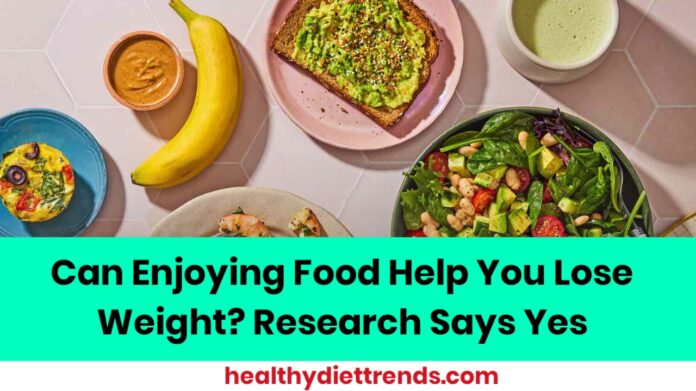You might be surprised to learn that people with obesity aren’t driven to overeat because they find junk food especially pleasurable. In fact, they often enjoy food less than those who maintain a healthy weight. But what if helping people enjoy eating more could actually lead to weight loss? This is exactly what researchers are now exploring.
Restoring Pleasure in Eating
According to research from the University of California, Berkeley, consistently eating a high-fat diet can train the brain to find indulgent foods less satisfying over time. In a groundbreaking study, scientists discovered that restoring the levels of a protein called neurotensin in the brain can help reset the reward system, making people more likely to experience pleasure from eating, particularly when consuming indulgent foods.
Published in the journal Nature, this study was conducted on mice, but it suggests important new avenues for tackling obesity. “Our findings suggest that restoring the pleasure of eating – not suppressing it – may help people eat more intentionally,” said Stephan Lammel, PhD, an associate professor of neurobiology at UC Berkeley. “Tuning into your enjoyment (or lack thereof) when you eat can offer real insight into your relationship with food.”
Beyond Ozempic: A New Approach

This research flips the script on popular weight loss drugs like Ozempic and Wegovy. While these medications suppress appetite to help with weight loss, Lammel’s research suggests that reconnecting with the pleasure of food might be a more effective, sustainable method for managing eating habits.
The brain’s reward system plays a critical evolutionary role—it motivates us to eat. But when that system is disrupted, people may find themselves eating out of habit or boredom, rather than because they’re genuinely hungry. Ironically, this can lead to overeating, not because we crave food more, but because the brain’s reward center is malfunctioning.
For more on how the brain’s reward system impacts eating behavior, read this insightful article from Harvard Medical School on the brain-gut connection: Understanding the Brain-Gut Relationship.
Practical Tips for Enjoying Food Mindfully
This new research also offers practical advice. Lammel suggests paying attention to whether you’re truly enjoying your food and being mindful of your cravings. If you find yourself eating without really tasting the food, or reaching for snacks when you’re not hungry, this could reflect changes in the brain’s reward response.
To help you reconnect with your eating experience, consider these tips:
- Ask yourself mid-meal: Am I still enjoying this? Being aware of your enjoyment (or lack thereof) can help you pause and make more intentional food choices.
- Notice cravings: Are they driven by pleasure or routine? For example, do you reach for snacks every time you watch TV?
- Pay attention to satisfaction: Focus on when you feel satisfied, not just full.
The Role of Food in Emotional Well-being
Lammel emphasizes that food is not just fuel—it’s deeply connected to emotion, motivation, and pleasure. “This research reminds us that food is not just fuel – it’s deeply connected to emotion, motivation, and pleasure,” Lammel said. “We hope our findings encourage people to reflect on their own relationship with food.”
If you’re struggling with overeating or a disconnection from food, Lammel encourages exploring new ways to reconnect with eating, such as:
- Choosing foods that are both enjoyable and nourishing.
- Experimenting with healthy ingredients in your favorite recipes.
- Slowing down to savor the flavors and textures of your meals.
Final Thoughts
The study offers a message of hope: If your relationship with food feels out of sync, it may not be about willpower. Often, patterns like overeating reflect real biological changes in the brain. The good news is that these changes may be reversible. By better understanding the brain’s role in eating, we can reduce stigma and move toward treatments that are rooted in compassion and science.
Also Read : Distracted? Your Phone Isn’t the Only Problem



